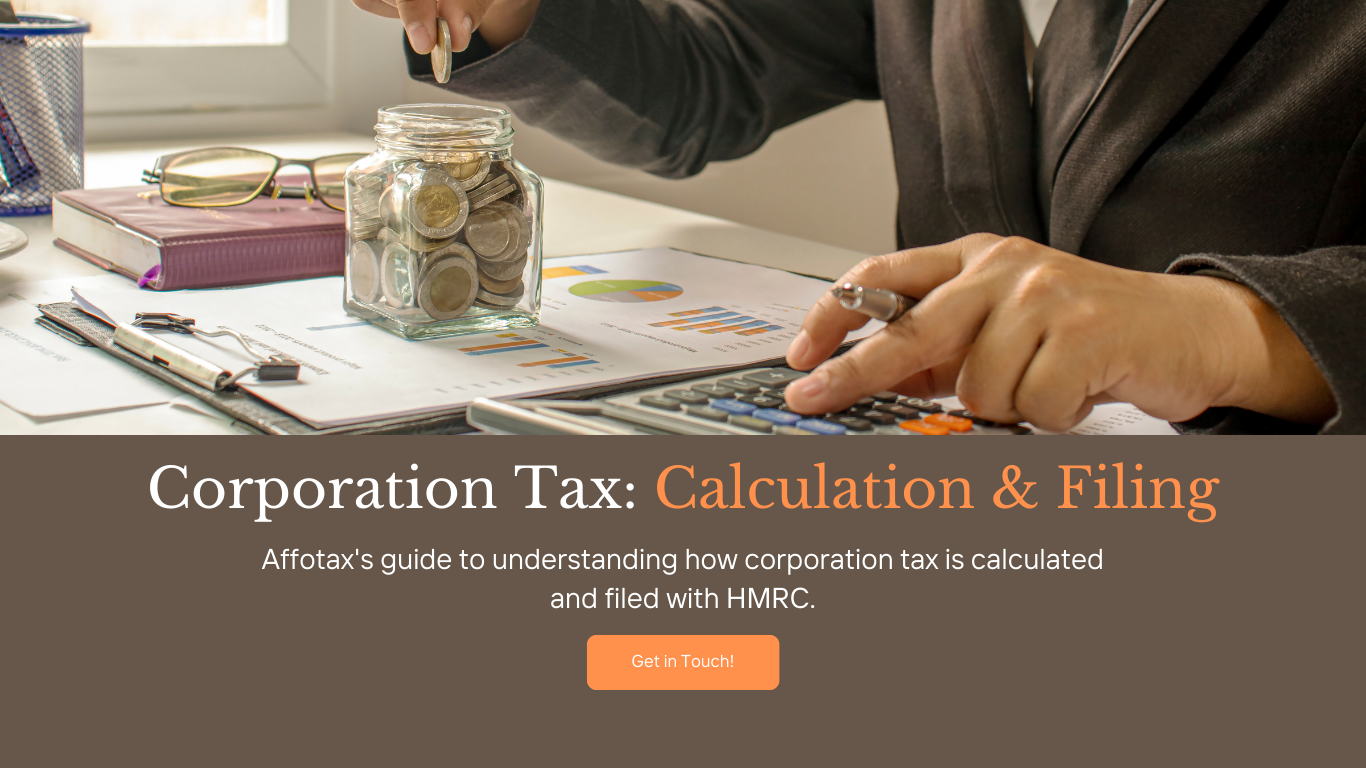A tax paid by limited companies and other taxable organisations is called corporation tax, which is calculated on the profit of these companies or organisations during their accounting period. As a business owner in the UK, it is essential to understand how to calculate corporation tax and file it. This blog post will explore the answer to "How is corporation tax calculated?" including the corporation tax filing and some other tips. Let's get right into it.
How is corporation tax calculated?
Nowadays, it is easier to calculate corporation tax as many online tools can help you do so quickly. Here is how you can do it yourself:
1. Determine taxable profits
The first step in calculating corporation tax is to determine your taxable profits. To do this, subtract allowable business expenses from your total income. Allowable business expenses include operating costs, staff salaries, and other business-related expenses.
2. Apply the corporation tax rate
Once you have successfully determined your taxable profits, the next thing you should do is apply the corporation tax rate. The corporation tax rates have been revised for the UK's financial year as of 1 April 2023. If your company has a profit of over GBP 250,000, you will have to pay 25% corporation tax; if it falls below GBP 50,000, you will pay 19%. However, your corporation tax can vary if your profits fall between GBP 50,000 and GBP 250,000; you must pay the primary tax rate (25%) with some marginal relief.
3. Deduct any tax credits
Suppose your company is eligible for tax credits, which is the money you can subtract from the income taxes you owe. In that case, you can deduct them from your corporation tax bill.
4. Submit your corporation tax return
After following the above steps, you are ready to submit your corporation tax return to Her Majesty Revenue & Customs (HMRC) within 12 months of the end of your accounting period.
5. Factor in special rules
Special rules or exemptions can affect Your corporation tax calculation due to particular circumstances. These circumstances include capital allowances on fixed assets, etc., which help reduce the corporation tax or research and development (R&D) tax credits, which are companies that work on projects in science and technology. This incentive helps a company offset some of the costs of eligible research and development (R&D). It is essential to note these factors that can be beneficial for you.
Suppose you have purchased any asset, including a computer, plant, machinery, or other office equipment. In that case, you can claim back the amount on the corporation tax. Contact us and let us help you reclaim your purchasing amount.
Here is an example of a calculated corporation tax return:
Company name: ABC LTD
Tax District: 123
Tax reference: 1234567890
Accounting period: From 01 January 2021 to 31 December 2021
Return period: From 01 January 2021 to 31 December 2021
Net profit: 60,782.00
| DATA | % | £ |
Profit chargeable to corporation tax profits | - | 60,782.00 |
Tax calculation | 19 | 11,548.58 |
Corporation tax chargeable | - | 11,548.58 |
Corporation Tax Filing
The corporation tax, also known as CT600, consists of your company's standard information; however, sometimes, it is necessary to do some complex calculations. These calculations depend on your company, which includes turnover, income, deductions and reliefs, tax reliefs and reductions, losses, tax reconciliation, etc.
Your company information would include company name, company registration number, Unique Taxpayer Reference (UTR), and type of company. The process can be daunting. To get detailed information, read the HMRC's guide, which is published to help business owners better understand the company tax return.
If you have received a notice from HMRC to deliver your company tax return, there is no need to panic. Our expert team knows the ins and outs of corporation tax. Let us help!
Here is what you should remember during your corporation tax filing.
1. Keep accurate records
It is essential to keep your records accurate and up-to-date, including your financial transactions, expenses, income, etc. This will help make filing easier while complying with UK law and regulations.
2. Utilise online filing platforms
The UK government encourages business owners to use online platforms to file their corporation tax returns online. HMRC offers online services, making things easier and faster for you.
3. Remember the deadlines
It is essential to stay compliant with deadlines because failing to file your corporation tax return on time can result in fines and penalties.
Now that you know "how is corporation tax calculated and filed", make sure you do it on time to avoid late filing penalties. Check out our Corporation Tax Filing service. Let us take the burden off your shoulders by calculating and filing your corporation tax.

